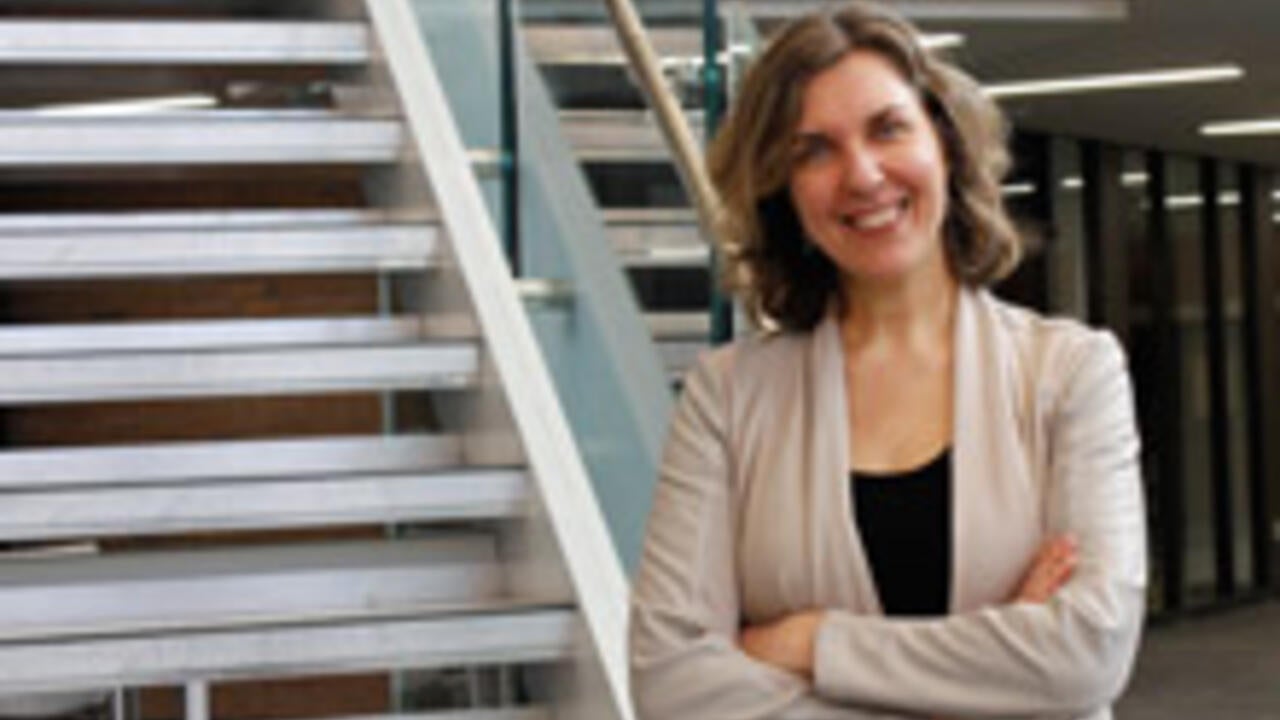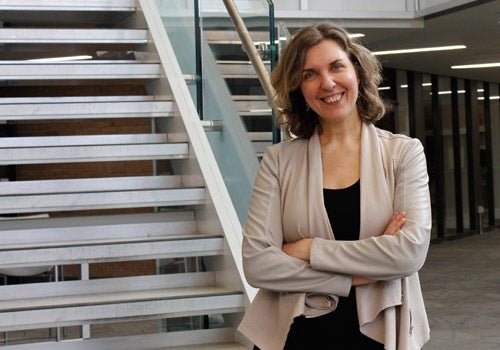
How publishing affects the gender pay gap for professors
Waterloo professor examines causes of gender bias among Canadian accounting professors

Waterloo professor examines causes of gender bias among Canadian accounting professors
By Nicole Bennett University Relations
Christine Wiedman
If a female accounting professor co-authors a scholary paper with men, does she get the same credit as the male co-authors?
Christine Wiedman, a professor at the University of Waterloo’s School of Accounting and Finance, says her preliminary findings suggest women get much less credit than their male counterparts. Wiedman points out getting credit during performance evaluations is crucial because professors’ advancement and salaries are tied to their publishing record.
“In looking at the number of publications, what I found was normally every publication translates to a higher salary,” says Wiedman. “But when I add an interaction variable of being female and working with men on co-authored papers, women actually get much less credit for those papers than they would get for papers that they solo authored or wrote with just women, or the credit that men get.”
Wiedman is researching what holds women back from senior academic roles in a research project supported by a Gender Equity Research Grant she received last year through the University of Waterloo’s HeForShe IMPACT initiative.
In analyzing the available salary data of Canadian academics in accounting, Wiedman’s preliminary findings have determined a gap between the salaries of men and women, notably concerning compensation for research collaboration. She plans to conduct sensitivity analysis in the coming months and release a working paper of her findings this summer.
Wiedman’s interest in this subject was partially sparked by her own experience. Years ago, when she worked on a research paper with her husband, the chair advised her during a performance evaluation to no longer work with him because it was difficult to identify where to attribute credit.
“I thought that was so strange,” says Wiedman. “It was very clear to me that we were both contributing in a substantive way. There was also the fact that he brought this up in my meeting but not in my husband’s meeting.”
The obstacles women face to receive credit for research will result in fewer women advancing the ranks in academic roles, according to Wiedman. “I think that’s a real disservice to students. In accounting, as in many fields, women comprise about 50 per cent at entry, but drop off as they move up.”
Wiedman theorizes that a possible explanation for why women may be paid less is role congruity theory, the perception of an individual based on pre-conceived notions of the individual’s group. Because of this often unintentional bias, “until you see successful women as leaders and researchers, it’s hard to think that they can do that,” says Wiedman.
I think one of my roles as an instructor is to be a role model for women in how they can be taken seriously in what they’re doing.” – Christine Wiedman
An outcome that Wiedman hopes for is to create awareness of potential biases that could arise based on deep-seated beliefs, which would be particularly important for performance evaluation committees in universities. With this awareness, Wiedman hopes universities will have a more open dialogue on the issue and ensure that policies are in place to ensure objective faculty evaluation.
To further its commitments with the United Nations Women’s HeForShe initiative, University of Waterloo will offer eight more grants of up to $10,000 over a one-year period in support of research investigating or addressing gender equity. Principal Applicants to the Gender Equity Research Grants must be tenured or tenure-track, full-time University of Waterloo faculty, or hold a definite term research professor appointment, where the primary affiliation is with Waterloo. The application deadline is June 15, 2017, with the final decision announced in September.

Read more
Researchers awarded funding to investigate ecology, climate change, repatriation, health and well-being through cultural and historical lens

Read more
Meet five exceptional Waterloo graduate students crossing the convocation stage as Class of 2025 valedictorians

Read more
Waterloo researchers propose solution to help communities escape the costly cycle of flood damage and rebuilding
The University of Waterloo acknowledges that much of our work takes place on the traditional territory of the Neutral, Anishinaabeg, and Haudenosaunee peoples. Our main campus is situated on the Haldimand Tract, the land granted to the Six Nations that includes six miles on each side of the Grand River. Our active work toward reconciliation takes place across our campuses through research, learning, teaching, and community building, and is co-ordinated within the Office of Indigenous Relations.